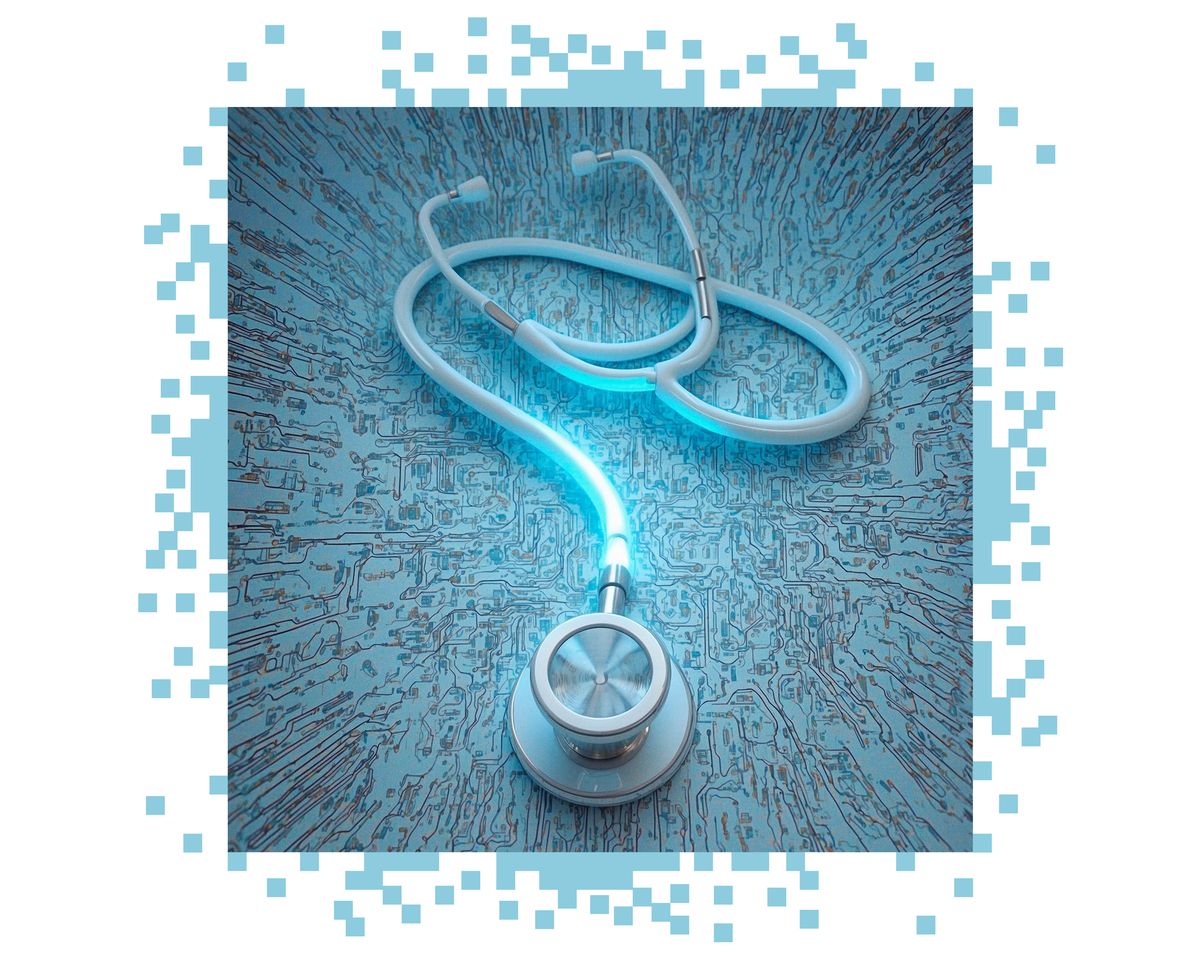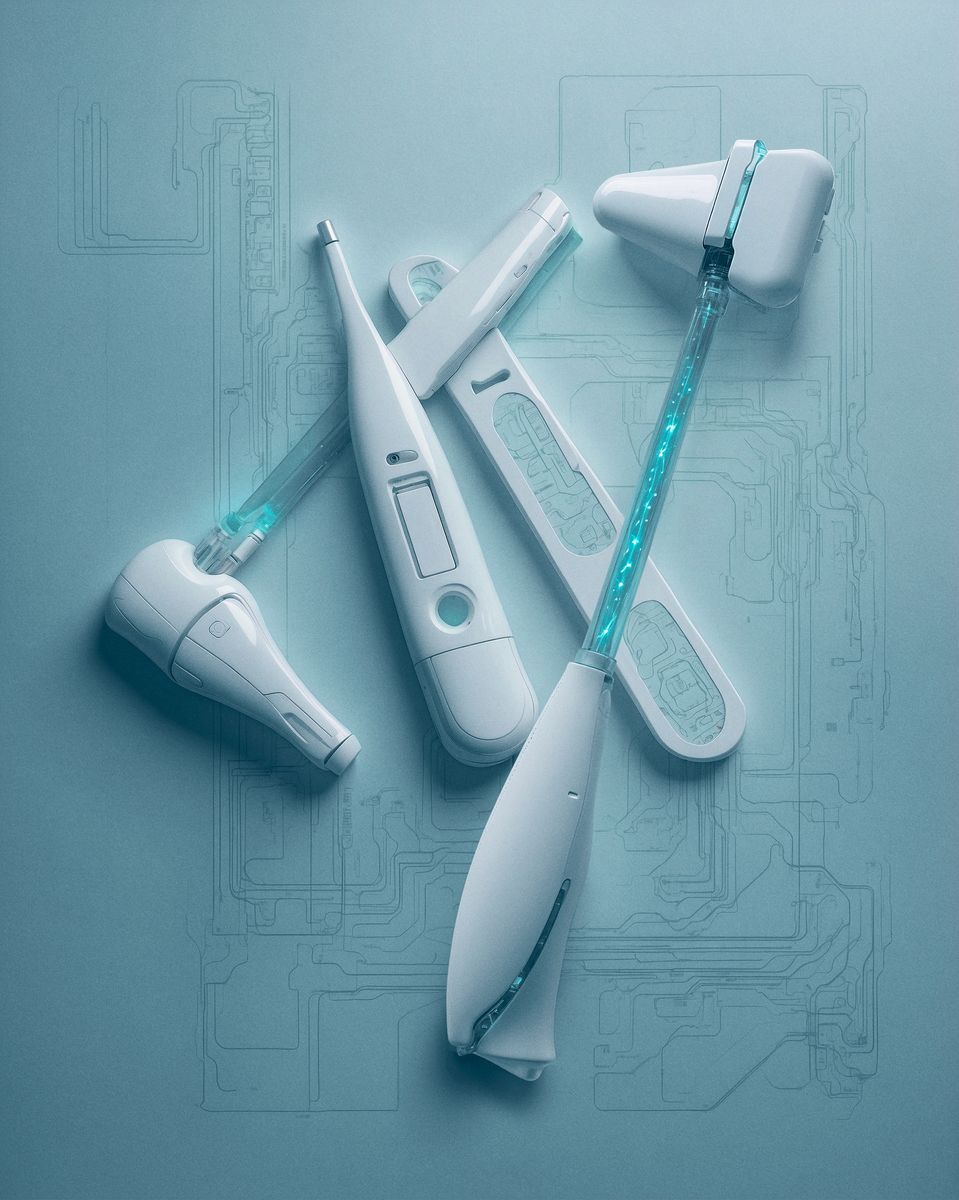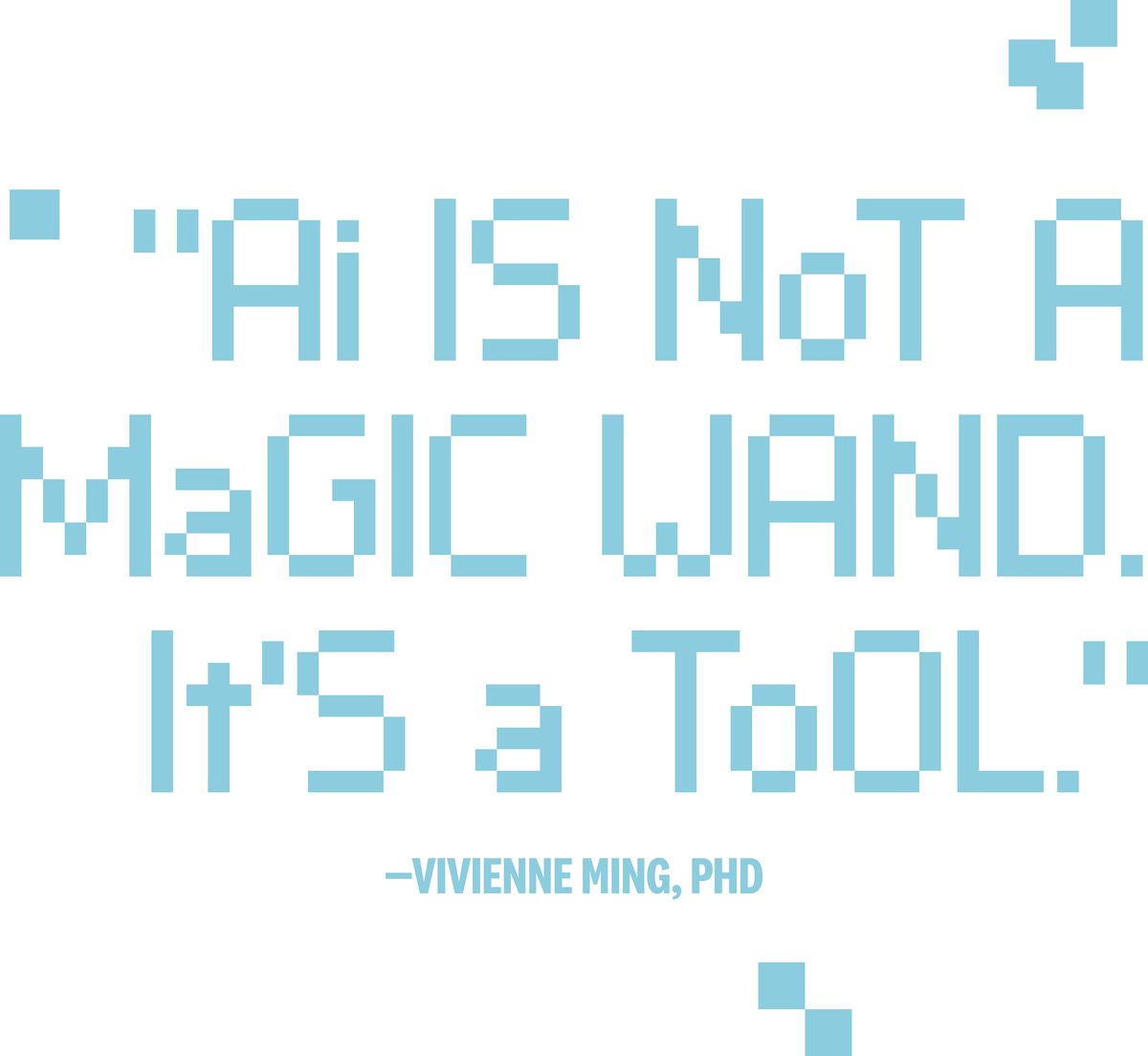The AI Health Care Revolution Is Already Here

stethoscope
Kellie Owens, PhD, answered a call from her mom, who was on the way home from a doctor’s office in rural Michigan. Her mom wasn’t calling to share her blood work results or say that she didn’t need a hip replacement—it was to tell Owens that the doctor had used Ambient.ai, a tool that listens to, and generates notes from, patient-provider conversations.
Owens, who is a medical ethicist at NYU Grossman School of Medicine, says her mom knew she’d be intrigued that AI had been used in the office.
“She was like, ‘l’ll show you what my notes look like after they’re generated by this chatbot!’” Owens, an assistant professor in the department of population health, recalls. “She was into it.”
Taking over clinicians’ note-taking duties is just one way AI is already infiltrating doctors’ offices nationwide. You’ve likely seen it in action in other ways too. In fact, if you’ve used a chatbot through your doctor’s office, undergone a minimally invasive surgery, received automated lab results, worn an Apple Watch, or tracked your periods with an app, then congratulations—you’re already part of the computer-assisted medical revolution, which taps into everything from algorithms to deep learning networks.
“AI is already here,” says Women’s Health advisor Samantha Nazareth, MD, a New York City–based internal medicine physician and gastroenterologist. “We’ve been using it for years, and you probably didn’t realize it.”

diagram, engineering drawing
What happens when AI meets medicine.
The introduction of AI into the care equation raises questions about what a doctor’s visit might look like 5 or 10 years from now. The tech has the power to change the way physicians work: Steven Waldren, MD, chief medical informatics officer at the American Academy of Family Physicians, says most of his colleagues see “a tremendous amount of promise and hope by leveraging AI to be more efficient, reduce the clinician burden, and deliver higher-quality care.”
Artificial intelligence may also help predict—and treat—health issues before they arise. Take postpartum depression (PPD), for example. It’s the most common pregnancy complication, yet half of folks struggling with PPD go undiagnosed. (And when they are diagnosed, it’s usually via a generic eight-question survey used after symptoms set in.) That’s why health-care company Dionysus Digital Health is developing tools that can detect chemical changes in specific genes that predispose someone to PPD before they’ve even given birth. The idea is that this kind of smart technology may enable you to be proactive rather than reactive when it comes to your mental health, says company cofounder Vivienne Ming, PhD, a theoretical neuroscientist, entrepreneur, and AI expert.
Treatment plans, too, are becoming more tailored. Suzanne Garner, a 46-year-old mom in California, used the AI-enabled app Outcomes4Me to match with a clinical trial after she was diagnosed with breast cancer in 2018. Her doctor had never heard of an app with this capability.
“My oncologist may have to see 700 patients, and a trial may be appropriate for only 40 of them. That’s not a fair burden on any one physician,” says Garner, who’s since completed the trial and remains cancer-free.
That experience, along with a cancer-induced reality check, inspired her to quit her job in financial services marketing and take over as director of marketing and community for Outcomes4Me. Joining the trial wouldn’t have been possible without technology, Garner says, and she feels everyone should have the same chance she was afforded.
One of AI’s greatest strengths is its potential to make health care exceptionally personalized.
Instead of treating you as an average person, it can treat you as a unique individual, Ming says. Right now, if you were to ask Dr. Google, for example, how long your menstrual cycle should be or when you should get your first mammogram, it would give you an answer based on the assumption that you are, in fact, tracking like an average person. But the reality for you might be very different.
Taking it a step further: While doctors have traditionally been trained to triage patients by considering the most likely diagnosis before exploring other possibilities, AI could help cut straight to the most likely possibility. That may mean receiving a life-changing diagnosis wouldn’t take as much time, money, and effort. Experts are excited about hypotheticals like this: Instead of assuming a 25-year-old just has “bad periods,” AI might be able to use personal biomarkers and medical info to determine the likelihood that she actually has endometriosis. Or that a young mom’s severe fatigue isn’t caused by stress, but rather by undiagnosed lupus. AI can quickly parse the mounds of data and find a diagnosis match that takes into account multiple symptoms and the patient’s medical history.
Plus, using AI to scan your records could be “such a huge tool to help providers understand and accurately decide what the next steps should be,” says Women’s Health advisor Navya Mysore, MD, a Brooklyn-based primary care physician. Currently, an invasive gynecological screen like a colposcopy requires doctors to make a decision based on a host of complex factors, including your health history, the “grade” of any irregular cells found, and frequently shifting medical guidelines, Dr. Mysore says. And frankly, the complexity of the decision itself can leave room for human error in the clinical setting, she adds.
“AI is really just a helpful tool that’s helping filter through all of the noise to present information and data that is specific to your issue, your diagnosis, your problem,” adds Garner.
It can be particularly useful when there’s not a clear answer. “AI is an automated, anonymous system that can make decisions under uncertainty. For example, how fast should this car be going when you’re making a left turn on a rainy night? Should this applicant get a loan?” Ming says. In other words, AI can offer a personalized, data-driven decision in complicated scenarios. “There aren’t always right or wrong answers, but there are better and worse answers. Traditionally, these have been purely human decisions. Now, increasingly, automated systems can do some of this decision-making.”

text

lines
There are some (very real) flaws AI brings with it.
While plenty of physicians see the opportunity, they also have valid concerns. After all, AI is only as good, or bad, as the knowledge it’s trained on, notes Ming. Large language models, or text-based AI tools, she says, “know everything and understand nothing.” (When writing a summary of a doctor’s visit, some AI tools have been found to produce reports with incorrect medical terms and list prescriptions patients aren’t actually taking.) Essentially, as Owens points out, current technology still needs humans to catch its errors.
What’s more, AI is built on historical data, capable of recalling and analyzing medical and language data that already exists. It’s less equipped to assess emerging or rare medical issues and instances of comorbidity. So if you start having unexplained symptoms tied to a complex interaction between two bodily systems—say, your immune and endocrine systems—AI may fall short in accurately diagnosing you. “When we’re talking about exploring the unknown, that’s what your human doctor should be doing,” Ming says.
In its quest to personalize, AI can also make inaccurate assumptions and even perpetuate existing biases. In one study, calculators with built-in race-based correction factors that are used to predict a woman’s likelihood of having a successful vaginal birth after cesarean predicted significantly different success rates based solely on race or ethnicity: A 30-year-old with a BMI of 35 and one prior C-section was given a 46 percent chance of successful vaginal birth if identified as white, and a 31 percent chance if African American or Hispanic. The calculator’s correction factor means physicians may be overly influenced by the perceived risk, making them more likely to recommend a C-section to patients of color.
While AI can now help doctors do things like predict preterm birth, monitor high-risk pregnancies, and identify fetal distress, that technology, no matter how smart, can’t magically cure the structural racism in America that is responsible for dire maternal mortality rates among Black and Brown women. “I’m in favor of attempts to use technology to fix what is clearly a tremendous problem in obstetrics [i.e., higher levels of maternal morbidity and mortality among Black women], but I don’t want folks to latch on to technology as a solution to things that are primarily social and political problems,” Owens says.
Experts also have legit concerns about confidentiality. “The promise of AI, ironically, is that we can make it more human, and the threat of AI is we make it more corporate, and all of that data gets shared out in ways we never, ever intended,” Ming says. That’s why Owens recommends you ask your provider how your data is being stored and used over time—and request that technology be disabled if you’re not cool with the response. “I don’t want the use of these tools to erode what might be already decreasing trust in health care and medical institutions,” she says.
There are also myriad practical applications in store.
In a best-case scenario, AI could one day help your doctor off-load relatively simple tasks—like writing out after-care instructions—and instead spend more quality time with you during your annual checkup. And you may not have to catch your doc up on everything that’s happened over the past year (“I went off birth control, stopped eating dairy, and had some weird dizzy spells, and there was that infection in March, and I think I have long COVID”)—they may already have been briefed.
That’s because AI should eventually be able to generate your medical history and even pull up other relevant, nonmedical data, such as information from your wearables or even your purchase history—whether that means a skin-care product or a health claim through your insurance company. “You won’t have to tell your story 20 times,” Dr. Nazareth predicts.
In some cases, too, your doctor could be following key health metrics all along. Beyond continuous glucose monitors that shoot regular readings to providers’ computer systems, Valley Oaks Medical Group, a Las Vegas Valley primary care practice with nine clinics, is experimenting with smart-home technology that aims to monitor the most chronically ill patients’ habits, predict negative outcomes, and direct patients to the hospital before it’s too late. Rather than replacing humans, “we’re using AI as a means to deliver better care, because it’s nearly impossible for one person to look at everything,” says Kim Grana, the market vice president at Valley Oaks Medical Group.
But some in the field aren’t overly excited yet. “The tech is billed as being able to relieve burden on clinicians,” Owens says. “I think it’s too early to say.”
What this actually means for you:
If all of this freaks you out, the comforting news is that you can likely opt in to the types of AI-infused care you are comfortable with, Dr. Nazareth says. (Don’t worry, your next annual exam won’t involve a shiny bot coming to take your vitals!) Instead, she foresees three kinds of doctors’ appointments, involving AI to a greater or lesser degree: “Some people will always want to see a doctor, and that visit will be more streamlined. Some people will be able to go to a kiosk or pod and interface with an avatar or robot for medical care. And some people will be able to do everything from home using virtual or augmented reality.”
The next decade will probably usher in a lot of change when it comes to use of AI in the medical field, and doctors, health-care leaders, and AI experts are preparing for what that entails.
Dr. Waldren sees it like this: Instead of talking about keeping a human “in the loop” with AI, we should talk about keeping AI in the loop with humans. “There will always be the need to have the human-mediated process for health care,” he says. At the end of the day, AI isn’t perfect. It can break down, make mistakes, leave you with more questions than answers. “It’s not intelligent like we are; it doesn’t reason,” Ming adds. “AI is not a magic wand. It’s a tool—maybe one of the most powerful tools ever invented—but it’s still just a tool.”
Photographer Dan Forbes created these images, then manipulated them using AI.
